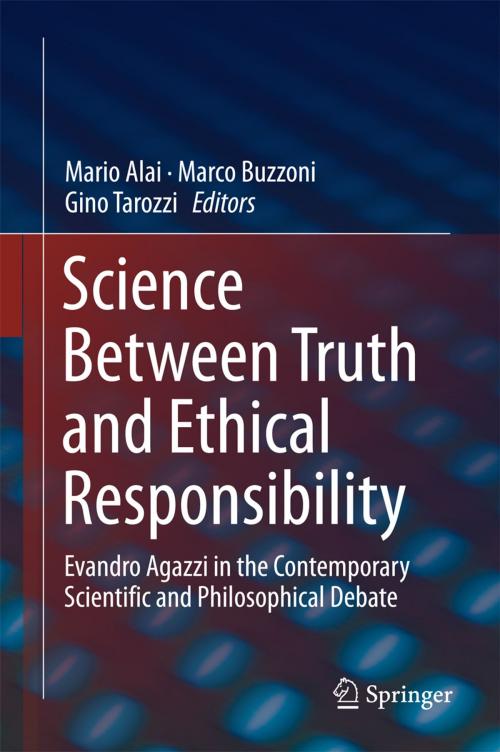Science Between Truth and Ethical Responsibility
Evandro Agazzi in the Contemporary Scientific and Philosophical Debate
Nonfiction, Science & Nature, Science, Other Sciences, Philosophy & Social Aspects, Religion & Spirituality, Philosophy, Ethics & Moral Philosophy| Author: | ISBN: | 9783319163697 | |
| Publisher: | Springer International Publishing | Publication: | April 30, 2015 |
| Imprint: | Springer | Language: | English |
| Author: | |
| ISBN: | 9783319163697 |
| Publisher: | Springer International Publishing |
| Publication: | April 30, 2015 |
| Imprint: | Springer |
| Language: | English |
This book offers the most complete and up-to-date overview of the philosophical work of Evandro Agazzi, presently the most important Italian philosopher of science and one of the most influential in the world. Scholars from seven countries explore his contributions in areas ranging from philosophy of physics and general philosophy of science to bioethics, philosophy of mathematics and logic, epistemology of the social sciences and history of science, philosophy of language and artificial intelligence, education and anthropology, metaphysics and philosophy of religion. Agazzi developed a complete and coherent philosophical system, anticipating some of the turns in the philosophy of science after the crisis of logical empiricism and exerting an equal influence on continental hermeneutic philosophy. His work is characterized by an original synthesis of contemporary analytic philosophy, phenomenology and classical philosophy, including the scholastic tradition and these threads are reflected in the different backgrounds of the contributors to this book. While upholding the epistemological value of science against scepticism and relativism, Agazzi eschews scientism by stressing the equal importance of non-scientific forms of thought, such as metaphysics and religion. While defending the freedom of research as a cognitive enterprise, he argues that as a human and social practice it must nonetheless respect ethical constraints.
This book offers the most complete and up-to-date overview of the philosophical work of Evandro Agazzi, presently the most important Italian philosopher of science and one of the most influential in the world. Scholars from seven countries explore his contributions in areas ranging from philosophy of physics and general philosophy of science to bioethics, philosophy of mathematics and logic, epistemology of the social sciences and history of science, philosophy of language and artificial intelligence, education and anthropology, metaphysics and philosophy of religion. Agazzi developed a complete and coherent philosophical system, anticipating some of the turns in the philosophy of science after the crisis of logical empiricism and exerting an equal influence on continental hermeneutic philosophy. His work is characterized by an original synthesis of contemporary analytic philosophy, phenomenology and classical philosophy, including the scholastic tradition and these threads are reflected in the different backgrounds of the contributors to this book. While upholding the epistemological value of science against scepticism and relativism, Agazzi eschews scientism by stressing the equal importance of non-scientific forms of thought, such as metaphysics and religion. While defending the freedom of research as a cognitive enterprise, he argues that as a human and social practice it must nonetheless respect ethical constraints.















